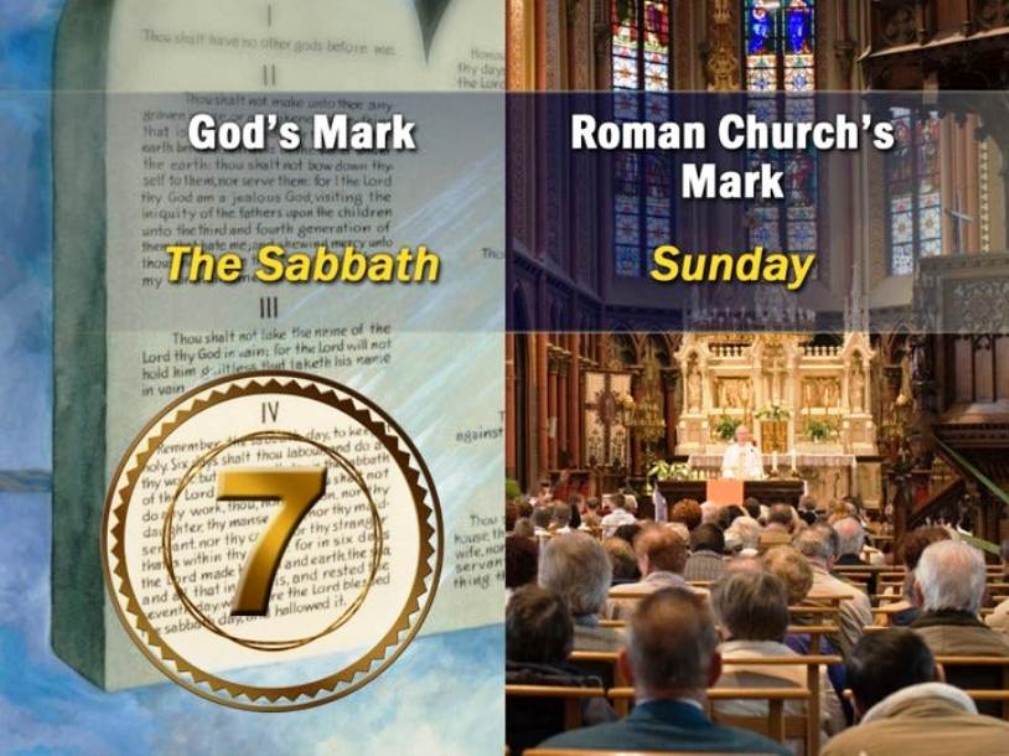
The Roman Catholic Church continues to advance its prophetic mission by promoting Sunday rest as the key element of societal and spiritual life. This effort aligns with its long-standing tradition of advocating for Sunday as the new day of worship. The argument for Sunday has gained momentum in recent years, especially since it has been presented as the remedy for an overworked and exhausted society.
Meanwhile, the Seventh-day Adventist community seems to be preoccupied with ecumenical efforts as they seek to find common ground with Rome rather than focusing on their historic role in warning against the dangers of Sunday legislation. Others are still questioning whether the book Great Controversy is still inspired. As the Catholic Church steadily works to normalize Sunday observance, distracted Adventists risk losing sight of their prophetic identity, which highlights the Sabbath as a symbol of loyalty to God’s law in contrast to the widespread promotion of Sunday rest.
EWTN owns the website ChurchPOP, which is a Catholic news outlet that aims to spread Catholic doctrine throughout the globe. On September 23, 2024, ChurchPOP published an article discussing the importance of observing Sunday and how this day is essential for a healthy spiritual life, preventing burnout at work, restoring our relationship with the Lord, and reaping unexpected blessings.
ChurchPop published the following:
• “Could mowing the lawn on Sunday be cutting into your spiritual life?” [1]
• “Taking a day off can seem counterintuitive, especially with today’s ‘hustle’ culture.” [1]
• “Many feel the tension of our world, and they want to get ahead so badly and they see Sunday as a day to make more money, to increase the value of their home, to get ahead in the world.” [1]
• “However, constantly pushing ourselves without rest can lead to burnout and disconnect us from what really matters: our relationship with the Lord.” [1]
• “In fact, the Third Commandment teaches us that setting aside Sunday for worship and rest is an act that aligns us more closely with God’s Will.” [1]
• “We’re thanking him for what he has given us in the previous six days, and we are trusting that he is going to provide for us in the next six days.” [1]
• “We have to have that faith, we have to seek that faith, and Sunday is such a great opportunity to do that.” [1]
• “Honoring the Lord’s Day is an amazing way to deepen your relationship with God and leads to unexpected blessings.” [1]
• “Sunday is a holy day. We have to set it apart; we have to make it different. Just try it, and I think you’ll be blown away by how generous God can be.” [1]
When you examine the Bible, you will notice that neither Christ nor His apostles changed the Sabbath from the seventh to the first day of the week. The question naturally arises, “Who then changed the weekly rest day, and how was this change brought about?” The Bible makes it abundantly clear that there would be a sinister power that would try to do what Christ never did—that is, try to alter God’s law.
“He shall speak great words against the Most High, and shall wear out the saints of the Most High, and think to change times and laws.” Daniel 7:25.
What is the power brought to view here? As witnessed in the ChurchPOP article, a Catholic-based media news site, there is no question that this power is none other than the papal power of Rome. Rome still today continues to push the claim that Sunday is the day of rest and worship. This is actually a confession on the part of the Catholic Church. The Holy Scriptures point out that someone will attempt to change God’s law, and Catholics are quick to confess their guilt as being the perpetrators who initiated the change.
Rome is on a mission to spread her lawlessness throughout the entire world. Even in ecumenical circles, Catholics have a purpose to collaborate with Protestants and Seventh-day Adventists in such action—to bring about he rise papal influence. It seems that many Protestants are willing to forget their heritage and the clear teachings of the Bible in order to come to terms with the Papal church. Leading Protestant figures are becoming more prepared to implement Vatican-issued recommendations on climate, Sunday rest and ecumenical unity.
Seventh-day Adventists should not participate in a work that seeks to spread Sunday observance throughout the world and that works to complete visible unity between Catholics and Protestants. Instead, we have a divine mandate in Revelation 14:6–12 to speak out against Sunday worship, Sunday laws, and the impending mark of the beast crisis. God is calling people out of Babylon to be His special people.
Only by maintaining a clear line of distinction between truth and error can we prevent the Adventist faith from becoming muddled at a time when ecumenism is eradicating the boundaries that separate the various churches. Either God has called out a special people with a special message in the last days or He has not.
“The enforcement of Sunday-keeping on the part of Protestant churches is an enforcement of the worship of the papacy—of the beast. Those who, understanding the claims of the fourth commandment, choose to observe the false instead of the true Sabbath; are thereby paying homage to that power by which alone it is commanded. But in the very act of enforcing a religious duty by secular power, the churches would themselves form an image to the beast; hence the enforcement of Sunday-keeping in the United States would be an enforcement of the worship of the beast and his image” (Great Controversy, p. 448).
Sources
[1] https://www.churchpop.com/why-avoiding-work-on-sundays-might-be-more-important-than-you-think/
Leave a Reply